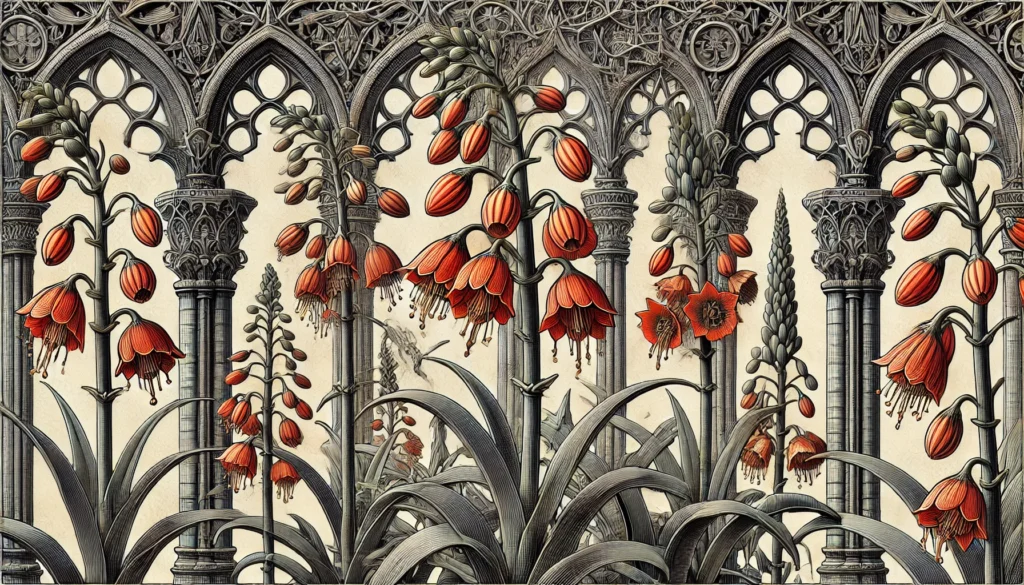

Home » Cat Plants » The Toxic Threat of the Mother of Millions Plant to Cats

The Mother of Millions plant, scientifically known as Kalanchoe tubiflora, is toxic to cats. This succulent, also called the Chandelier Plant or Devil’s Backbone, poses a moderate threat to felines if ingested.
The plant contains bufadienolides, cardiac glycosides that can cause gastrointestinal and cardiovascular issues in cats. Commonly found as a houseplant or in outdoor gardens in warm climates, this attractive but dangerous succulent requires caution for cat owners.
Ingestion may cause mild gastrointestinal upset, but is generally not life-threatening.
Ingestion can result in mild symptoms like vomiting, diarrhea, or drooling. Rarely fatal but may require veterinary care.
Eating these plants can lead to more pronounced symptoms like abdominal pain, lethargy, or difficulty breathing. Veterinary intervention may be necessary.
Ingesting even small amounts can cause severe symptoms like organ damage, seizures, or cardiac failure without rapid treatment.
All parts of these plants are extremely poisonous to cats and can quickly lead to death, even with immediate veterinary care.
** Please note: Please note that toxicity level can vary based on the amount ingested and the specific cat. It's always best to keep these plants completely inaccessible to cats and seek immediate veterinary care or call the poison hotline if you suspect your cat has ingested any part of a toxic plant.
When a cat ingests the Mother of Millions plant, it may experience a range of symptoms due to the toxic compounds present. The severity of these symptoms can vary based on the amount consumed and the individual cat’s sensitivity.Common symptoms of Mother of Millions poisoning in cats include:
In rare and severe cases, ingestion of large quantities may lead to more serious cardiovascular effects, including abnormal heart rhythms.
If you suspect your cat has ingested the Mother of Millions plant, a veterinarian will likely perform a thorough examination and may provide the following diagnoses:
The vet may also conduct blood tests to assess organ function and electrolyte levels.

A: Yes, the Mother of Millions plant is highly toxic to cats. Ingestion of this plant can lead to serious health issues, including poisoning and potential death if not treated.
A: If a cat eats Mother of Millions, symptoms like vomiting, diarrhea, and lethargy may occur. In severe cases, it can also cause tremors, seizures, and heart problems.
A: The Mother of Millions plant is extremely toxic to pets, particularly cats and dogs. Even small amounts can result in severe poisoning, requiring immediate veterinary attention.
A: If your cat has ingested Mother of Millions, it’s crucial to contact your veterinarian right away. The vet may administer treatment to manage symptoms and reduce toxicity.
A: Yes, many pet-friendly plants like Boston ferns or spider plants are safer alternatives to the Mother of Millions. These options are non-toxic and can add greenery to your home without risking your cat’s health.
A: To keep your cat away from toxic plants such as the Mother of Millions, place plants in areas inaccessible to your pet or remove dangerous plants altogether. Providing your cat with cat grass or safe plants can also help deter them from toxic plants.
The Mother of Millions plant, native to Madagascar, belongs to the Crassulaceae family. It gained popularity as an ornamental plant due to its unique appearance and easy propagation. The plant’s common name comes from its ability to produce numerous plantlets along its leaf margins, which can easily detach and grow into new plants.
Introduced to various parts of the world, it has become invasive in some regions, particularly in Australia, where it’s considered a noxious weed. Despite its toxicity to pets and livestock, the Mother of Millions continues to be cultivated for its attractive appearance and low maintenance requirements in succulent gardens and as houseplants.
Please note: The information shared in this post is for informational purposes only and should not be considered as veterinary medical advice.
🐾 A hilarious or heart-melting cat video
🐾 Our latest paws-on review of a cool cat toy